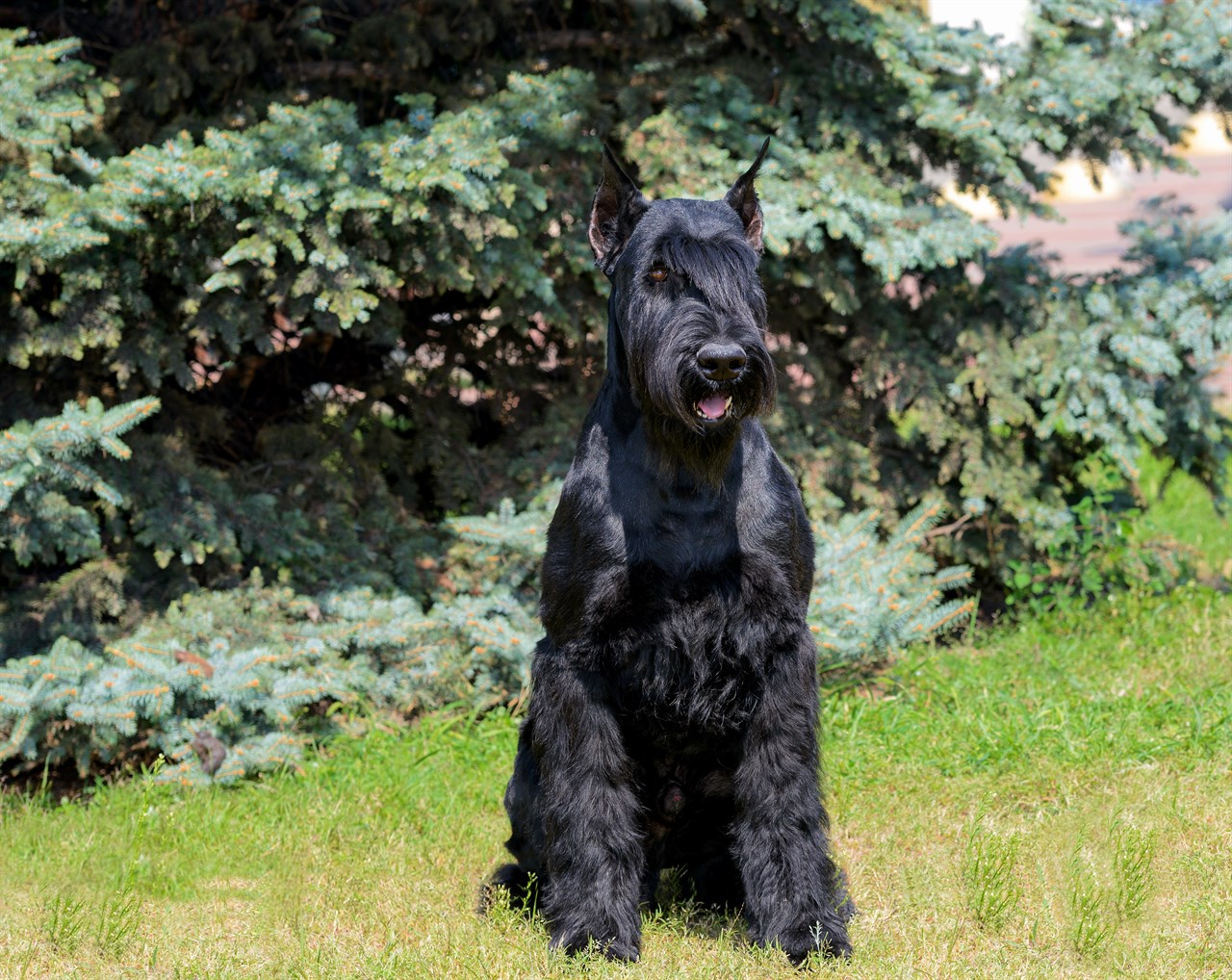Common Health Issues of the Giant Schnauzer: Navigating Potential Challenges

While the Giant Schnauzer is generally a robust and healthy breed, like all dogs, they may be prone to certain health issues. Being aware of these common concerns and taking proactive measures can contribute to the overall well-being and longevity of these majestic dogs.
Hip Dysplasia
Hip dysplasia is a common concern in many large breeds, including the Giant Schnauzer. This condition involves abnormal development of the hip joint, leading to discomfort and potential arthritis. Responsible breeding practises, including hip screenings, can help mitigate the risk.
Bloat (Gastric Torsion)
Giant Schnauzers are one of the breeds more susceptible to bloat, a serious and potentially life-threatening condition. Bloat occurs when the stomach fills with gas and twists on itself. Rapid eating, feeding from an elevated bowl, and vigorous exercise after meals can contribute to bloat. Immediate veterinary attention is crucial if bloat is suspected.
Eye Issues
Some Giant Schnauzers may be prone to certain eye conditions, including cataracts and progressive retinal atrophy (PRA). Regular veterinary check-ups, including eye examinations, can help monitor and address any developing issues.
Pancreatitis
Pancreatitis, inflammation of the pancreas, can occur in Giant Schnauzers. Dietary management, including avoiding high-fat foods, can help prevent the onset of pancreatitis. Signs include vomiting, lethargy, and abdominal pain.
Autoimmune Thyroiditis
Giant Schnauzers may be susceptible to autoimmune thyroiditis, a condition where the immune system attacks the thyroid gland. Regular thyroid screenings can help monitor thyroid function and address any imbalances.
Liver Disease
Liver disease, including liver shunts, can affect Giant Schnauzers. Monitoring liver function through regular veterinary check-ups and addressing any symptoms, such as lethargy and jaundice, is important for early detection and management.
Anxiety in Giant Schnauzers
Giant Schnauzers are known for their intelligence and strong bonds with their families. While they are generally confident dogs, some individuals may be prone to anxiety, especially if not properly socialised or if they experience changes in their environment.
Are Giant Schnauzers Anxious?
Not all Giant Schnauzers are anxious, but some individuals may be more predisposed to anxiety based on their temperament and experiences. Proper socialisation from an early age, positive reinforcement training, and a stable home environment contribute to a confident and well-adjusted Giant Schnauzer.
Are Giant Schnauzers Prone to Separation Anxiety?
Giant Schnauzers, like many breeds, may be prone to separation anxiety, especially if they form strong bonds with their owners. Early training to help them cope with being alone, gradual desensitisation to departures and arrivals, and providing mental stimulation during periods of solitude can help prevent separation anxiety.
Do Giant Schnauzers Get Separation Anxiety?
While not all Giant Schnauzers experience separation anxiety, some individuals may exhibit signs of distress when left alone. Common signs include excessive barking, destructive behaviour, and house soiling. Addressing separation anxiety involves training, gradual departures, and providing a stimulating environment in the owner's absence.
Conclusion
In conclusion, being aware of the common health issues and potential behavioural concerns of the Giant Schnauzer allows owners to take proactive steps in their care. Regular veterinary check-ups, a balanced diet, proper training, and a loving, stable environment contribute to the overall health and happiness of these majestic dogs.
Schnauzer (Giant) puppies for sale
- Find Schnauzer (Giant) puppies for sale in ACT
- Find Schnauzer (Giant) puppies for sale in NSW
- Find Schnauzer (Giant) puppies for sale in NT
- Find Schnauzer (Giant) puppies for sale in QLD
- Find Schnauzer (Giant) puppies for sale in SA
- Find Schnauzer (Giant) puppies for sale in TAS
- Find Schnauzer (Giant) puppies for sale in VIC
- Find Schnauzer (Giant) puppies for sale in WA